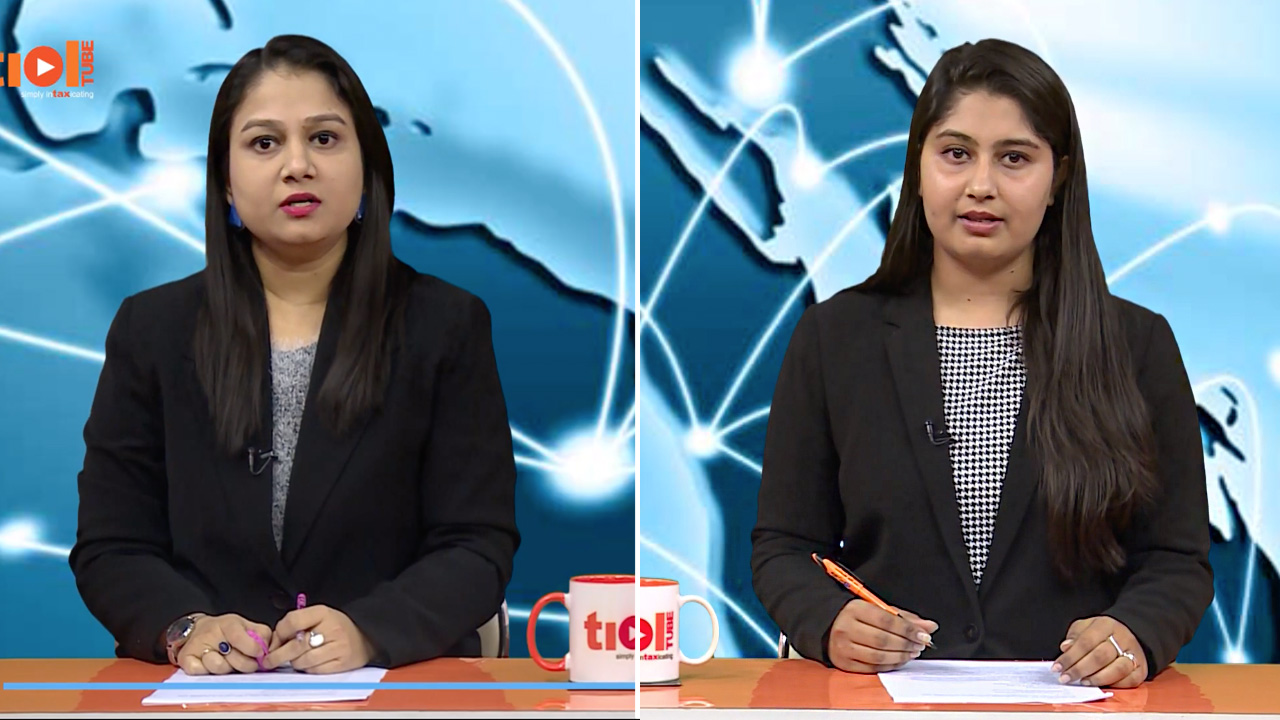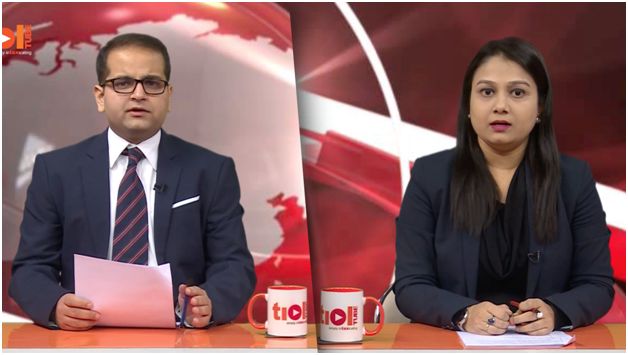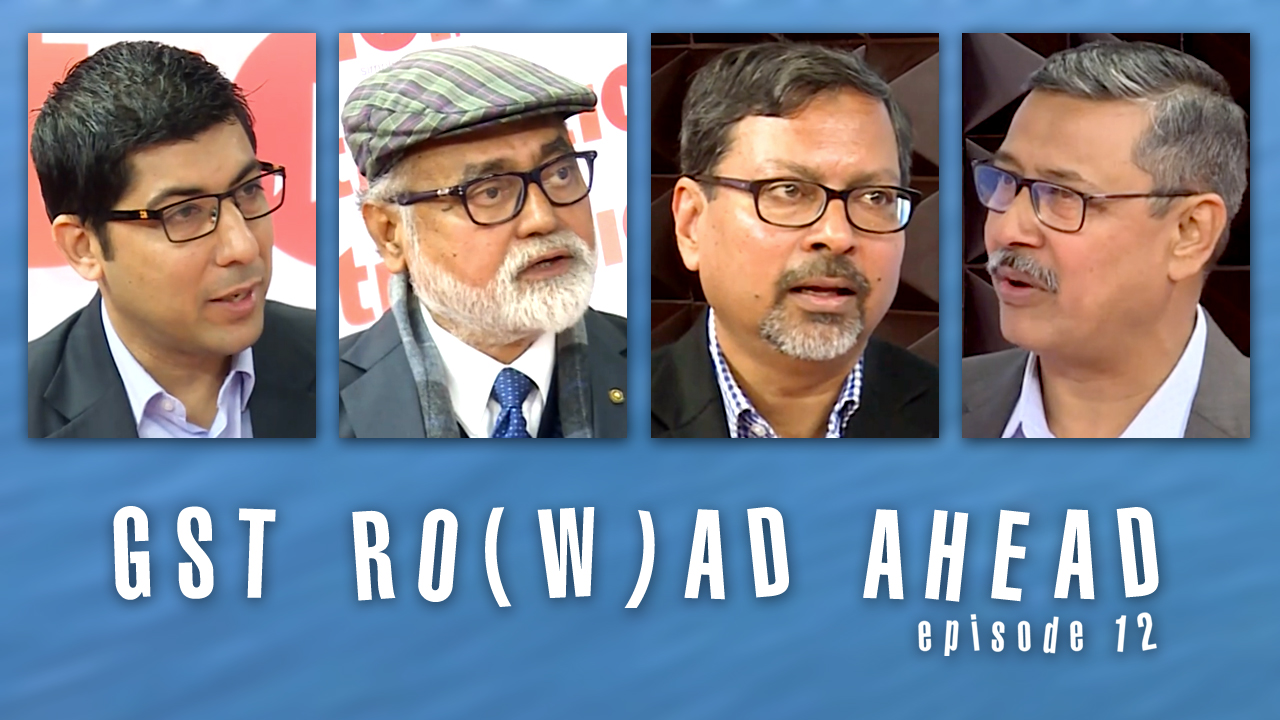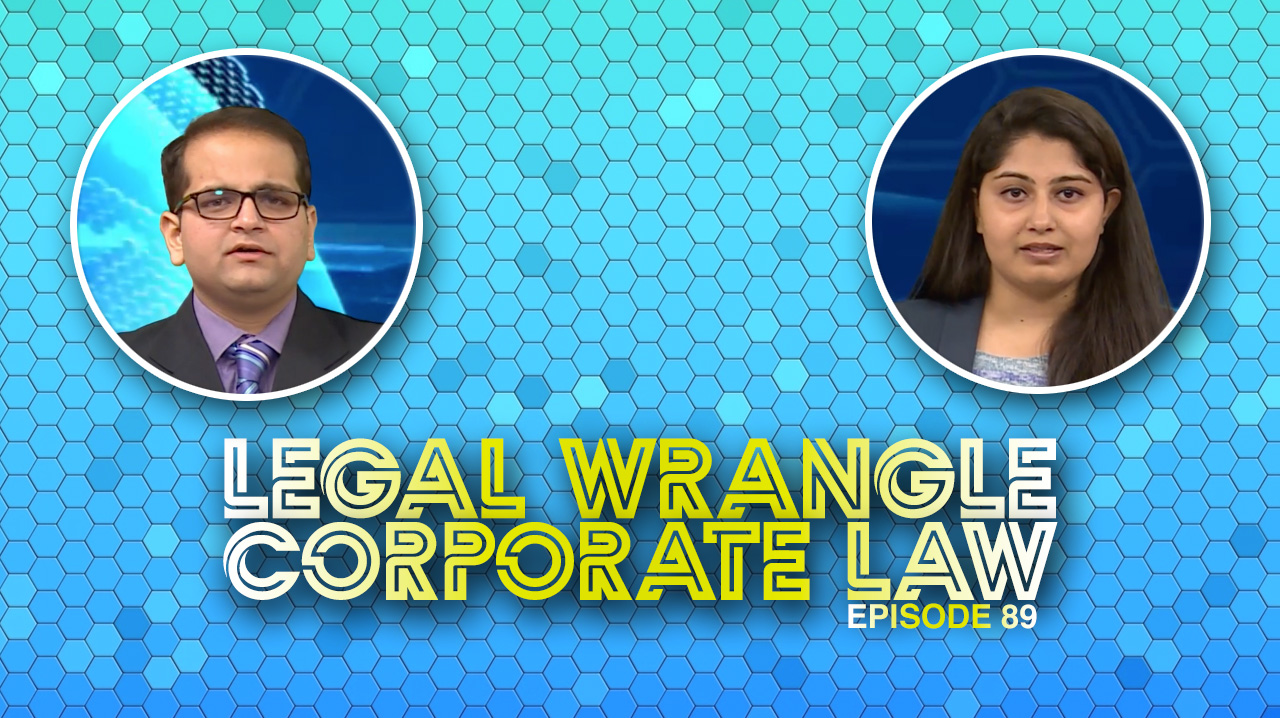SERVICE TAX
2019-TIOL-356-CESTAT-MUM + Case Story
Morgan Construction Company India Pvt Ltd Vs CST
ST - Rate of exchange - Prior to 28 May 2012 [Finance Act, 2012] no provision existed in law to govern the rate of exchange to be adopted in relation to assessable value of service for which consideration was taxed under section 66A of Finance Act, 1994 - in the absence of a legal mechanism for alternate computation, the exchange rate at which the payment was remitted to the overseas entity alone could be applied - Section 67A of FA, 1994 does not apply for the period 2006-07 to 2007-08 - demand of tax on differential rate of exchange does not sustain: CESTAT [para 5, 8]
ST - Penalty - s.78 of FA, 1994 - entitlement to CENVAT credit of tax so paid eliminated the attribution of motive or conduct that are the ingredients for imposition of penalty under section 78 FA, 1994 - dispute is in the realm of interpretation - Penalties set aside: CESTAT [para 7, 8]
- Appeal partly allowed: MUMBAI CESTAT
2019-TIOL-349-CESTAT-AHM
Prabhudas Keshavlal Patel Vs CST
ST - Whether the service provided by assessee is classifiable under Cargo Handling Service as claimed by department or under Manpower Supply Service as claimed by assessee - As per the contract between assessee and railway, it is transpired that service is of loading and unloading and the charges were also according to weightage of material handled, therefore, the service is clearly classifiable under Cargo Handling Service - The charges are not as per the man hour or labour wages, therefore, it is not manpower supply service, and hence the service tax is correctly chargeable under Cargo Handling Service - Accordingly, the demand of service tax is upheld - As regard the penalties imposed under Section 76, 77 and 78, the issue involved is of interpretation of classification of service, therefore, no malafide can be attributed to assessee - Accordingly, the penalties imposed under Section 76, 77 and 78 are set aside by invoking Section 80 of FA, 1994: CESTAT
- Appeal partly allowed: AHMEDABAD CESTAT
2019-TIOL-348-CESTAT-MAD
Sella Synergy India Pvt Ltd Vs CST
ST - The assessee was in business of provision of "Information Technology Software Services" and entered into Business Transfer Agreement (BTA) with M/s. Sella Servizi Bancari S.C.P.A, a company established in Italy, agreeing to sell, assign, transfer and convey the business, including transfer of personnel on a slump sale as a going concern and on "as is where is" basis, for a consideration specified in said agreement - In relation to those services rendered during period 01.01.2010 to 14.02.2010, assessee made a claim for refund of service tax inputs used for provision of export services, under Rule 5 of CCR, 2004 - Revenue has not disputed the payment of Service Tax on input services used by assessee for its export of service - From a perusal of impugned order, it is not their case that refund was denied because of violation compliance or violation of conditions of Rule 5 of CCR - The only reason for denial of refund by Revenue is on the allegation that export proceeds were received by assessee’s successor i.e. realised by its successor at Italy - It is clear that though the account holder with recipient bank (IDBI Bank Ltd) is successor, the amount is credited to an Indian Account - In this factual background, the decision relied on by assessee in case of National Engg. Industries Ltd. - 2008-TIOL-939-CESTAT-DEL assumes importance - Under Rule 3 of Export of Services Rule, 2005, export of service was exempted from Service tax - The assessee had wrongly paid Service tax on commission got from M/s. General Motors Corpn. through Indian Railways and claimed the refund of tax - The adjudicating authority had rejected the refund claim on the ground that it was hit by Rule 3(1)(b) of said Rules which was upheld by Commissioner (A) - It is clear that the receipt of export proceeds in Indian currency, in lieu of Foreign exchange, even makes it sufficient to be considerd as receipt of foreign currency, in India - The authorities below have proceeded to reject on assumptions; OIO points out that transactions made were for the operations at Italy which only means that Adjudicating Authority is not disputing that services were rendered outside India - It is also not a situation where there has been multiple / separate refund claims, to reject refund claim - Article 265 clearly rules that there cannot be collection of tax without authority to Law, so also, the revenue should justifiably prove its authority to reject refund and retain when clearly the amount did not belong to it, but to another - The authorities have erred in adjudicating the refund claim and hence the impugned order is set aside: CESTAT
- Appeal allowed: CHENNAI CESTAT
2019-TIOL-347-CESTAT-HYD
Sri Sai Sampath Aviation Hadling Service Vs CCE and ST
ST - Assessee was providing ground handling services to airlines during relevant period at the air ports - A SCN was issued alleging that assessee had not discharged service tax liability correctly and a demand towards service tax for period 2008-09 to 2012-13 along with applicable interest was proposed in SCN - It was also proposed to impose penalties under sections 76, 77 & 78 of Chapter V of FA, 1994 on assessee - It is not in dispute that assessee had not discharged full service tax liability by not disclosing the full value of services rendered by them in their ST- 3 returns - It is only the investigation of department which revealed the true value - No reason found to agree with the assessee that this case should be remanded back to original authority - Firstly, once a SCN is issued, original authority or appellate authority cannot go beyond the scope of SCN and investigate if assessee have paid the tax at a subsequent stage - It does not appear from records that the assessee has put forth as his defence at any stage that they have, in fact, paid the service tax demanded on a subsequent date - Even assessee has not put forth any data to show that service tax which was demanded was already paid by them subsequently - Assessee has not correctly reflected the value of services rendered by them in their ST-3 returns or paid service tax thereon - When the return has to be filed by assessee, it is expected that they reflect the correct figures in returns and not by doing so, they have suppressed the value of the services and thereby evaded payment of service tax - Therefore, penalty is imposable under section 78 of FA, 1994 for not payment of service tax - Penalty is also correctly imposed under section 77 of FA, 1994 for the violations mentioned in O-I-A - No reason found to interfere with the impugned order: CESTAT
- Appeal rejected: HYDERABAD CESTAT
CENTRAL EXCISE
2019-TIOL-346-CESTAT-DEL
Rajshree Industries Vs CGST, CC and CE
CX - The assessee is engaged in manufacture of Stainless Steel patta /patti and working under special procedure for compound levy scheme for SS Patta/ Patti prescribed vide notfn 17/2007-CE issued under Rule 15 of Central Excise Rules - The issue to be decided is as to whether refund claim of proportionate Central excise duty deposited for non working period of newly added machines is admissible to assessee - This notification gives an option to manufacturer of SS Patta/ Patti which are subjected to process of cold rolling, whereby assessee can pay excise duty on the basis of no. of cold rolling machines installed for cold rolling of those goods - When no cold rolling machine was installed or any of machine was not operational question of payment of duty including such non-operational/ non-installed machine shall not arise - Tribunal draw the support from decision of Jupiter Industries - 2006-TIOL-459-HC-RAJ-CX wherein it was held that payment of duty after dismantling of machines and discontinuance of production is not contemplated by Rule 96 ZB and 96 ZB(2) of CER, 1944 - It is clear from Rule 96 ZA that Patts/ Pattis manufacturers can opt for the special procedure - It was held that none of these rules contemplate payment of duty after a machines has been dismantled as production of machines discontinued - The said decision is squarely applicable in instant case where assessee had paid the duty for months of November to February despite that all cold rolling machines were not operating for certain no. of days during the month of November 2016 to February 2017 - Assessee is entitled for proportionate refund of duty for the days when the cold rolling machines were not operational - The order under challenge is therefore held not sustainable, resultantly is set aside: CESTAT
- Appeal allowed: DELHI CESTAT
2019-TIOL-345-CESTAT-MAD
Sri Kannchi Steel Pvt Ltd Vs CGST and CE
CX - The assessee is engaged in manufacture of non-alloy steel and hot re-rolled products - The main issue that arises for consideration is whether the assessee is eligible for abatement during the period when rolling mill was shutdown / non-functional - In impugned order, the Commissioner has observed that assessee has not complied with clause (a) of sub-rule (2) of Rule 96ZP of CER, 1944 and therefore is not entitled for abatement - As per this rule, assessee has to give intimation to the department informing the department the period during which the unit is shut down and the reasons for closing down - The Commissioner has noted that no such intimation was received from the part of assessee - However, in appeal memo, the letter issued by department is enclosed - In such letter, Commissioner has permitted to furnish copies of letters to the assessee - The only strong inference that can be drawn from this letter is that the intimations regarding the closure of the factory was received by department - Therefore, the rejection of abatement on the ground that assessee did not give intimations cannot sustain - The High Court in case of Chamundi Steel Castings (India) Ltd. had observed that the assessee was eligible for abatement on pro-rata basis - Taking the facts of the case into consideration as well as the provision of law and the decision of High Court, the rejection of abatement is without basis - The impugned order rejecting the abatement cannot sustain and requires to be set aside: CESTAT
- Appeal allowed: CHENNAI CESTAT
CUSTOMS
2019-TIOL-344-CESTAT-BANG
Syed Jameeluddin Vs CC
Cus - The challenge in present appeal is against the order of Prohibition issued by Commissioner of Customs, Bangalore under Regulation 23 of CBLR, 2013 - The order appears to have been issued on the basis of Investigation Report received from DRI, Bangalore - The assessee being licensed by Commissioner of Customs, Hyderabad, the Commissioner of Customs, Bangalore is not the disciplinary authority for assessee - From the impugned Order of Prohibition, prima facie, certain serious violations of CBLR 2013 are evident inasmuch as assessee appears to have allowed M/s. V.D. Logistics to make the use of licence issued to assessee for monetary considerations - Since certain violations of CBLR 2013 are evident on the part of assessee and hence it is not necessary to interfere with prohibition order impugned in present proceedings - However, by following the decision of Madras High Court in Patriot Freight Logistics System - 2017-TIOL-429-HC-MAD-CUS, liberty is granted to assessee to approach the Commissioner of Customs, Bangalore for a post-decisional hearing and for submitting any evidence relevant to prove his innocence - Without setting aside the Order of Prohibition, appeal disposed of with the direction to Commissioner of Customs, Bangalore to reconsider his decision after giving an opportunity of hearing to the assessee to produce any additional evidence to support his case: CESTAT
- Appeal disposed of: BANGALORE CESTAT
2019-TIOL-343-CESTAT-ALL
Sanjeeb Kumar @ Pappu Kumar Vs JCC
Cus - The second & third appellants herein were intercepted at the railway station, whereupon search of their baggage revealed them to be carrying some Gold bars - Based on the markings on them, they were presumed to be of foreign origin - They claimed to have received the Gold from the first appellant - Hence proceedings were initiated against all three appellants - The Gold was confiscated & penalties were imposed upon them.
Held: The appellants failed to prove the origin of the Gold - Thus while it is clear that the Gold has been smuggled, the Revenue too failed to prove conclusively that the Gold had been imported or smuggled through Nepal - Thus the Gold cannot be help to be restricted goods, in which case they can be released upon payment of redemption fine - Penalty is payable as well, since the goods have been smuggled - Moreover, considering the value of the Gold & the margin of profit arising from trade in Gold, an amount of redemption fine is imposed - Further the quantum of the penalties imposed stands reduced: CESTAT (Para 2,6)
- Assessee's appeals partly allowed: ALLAHABAD CESTAT









